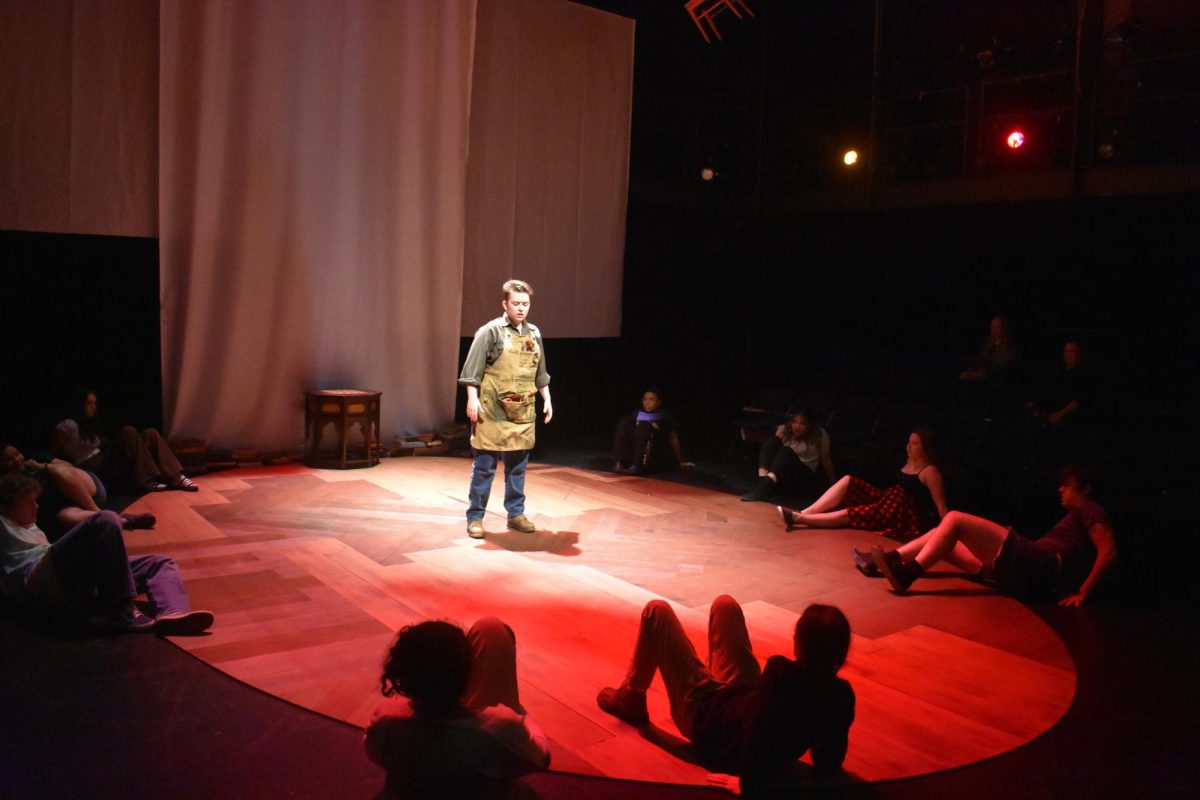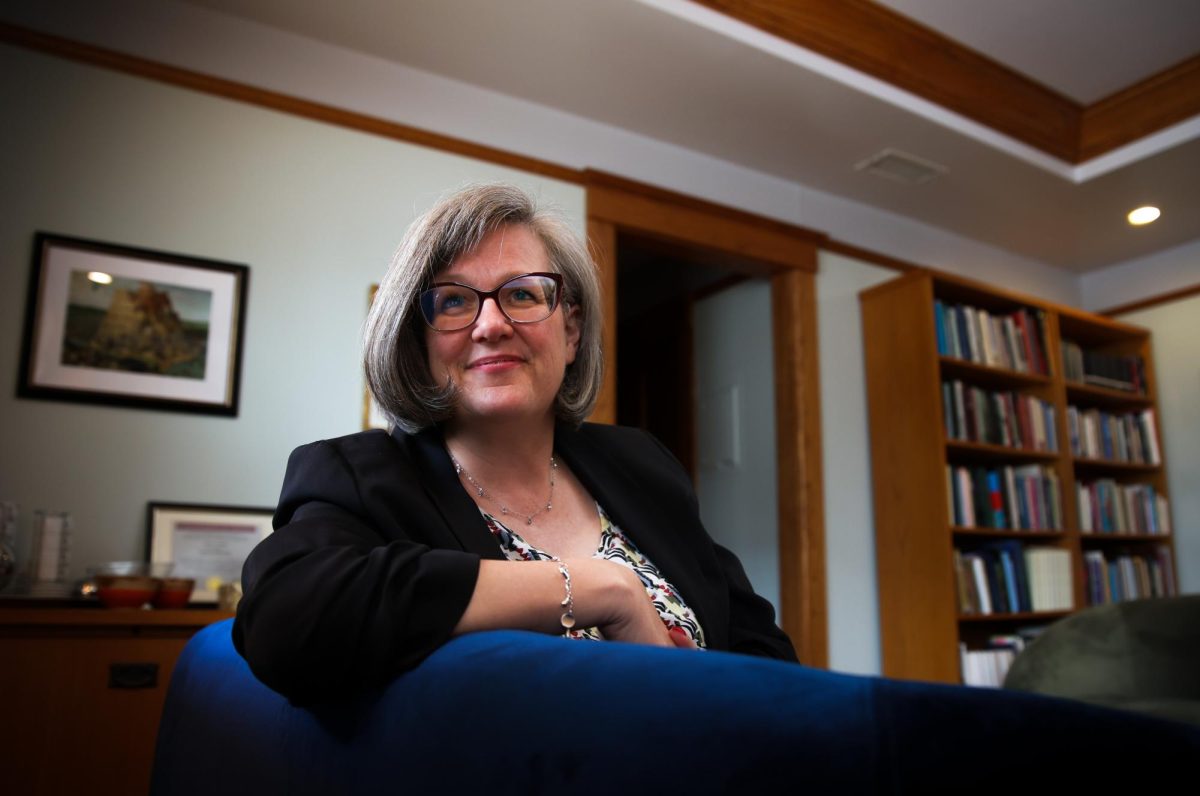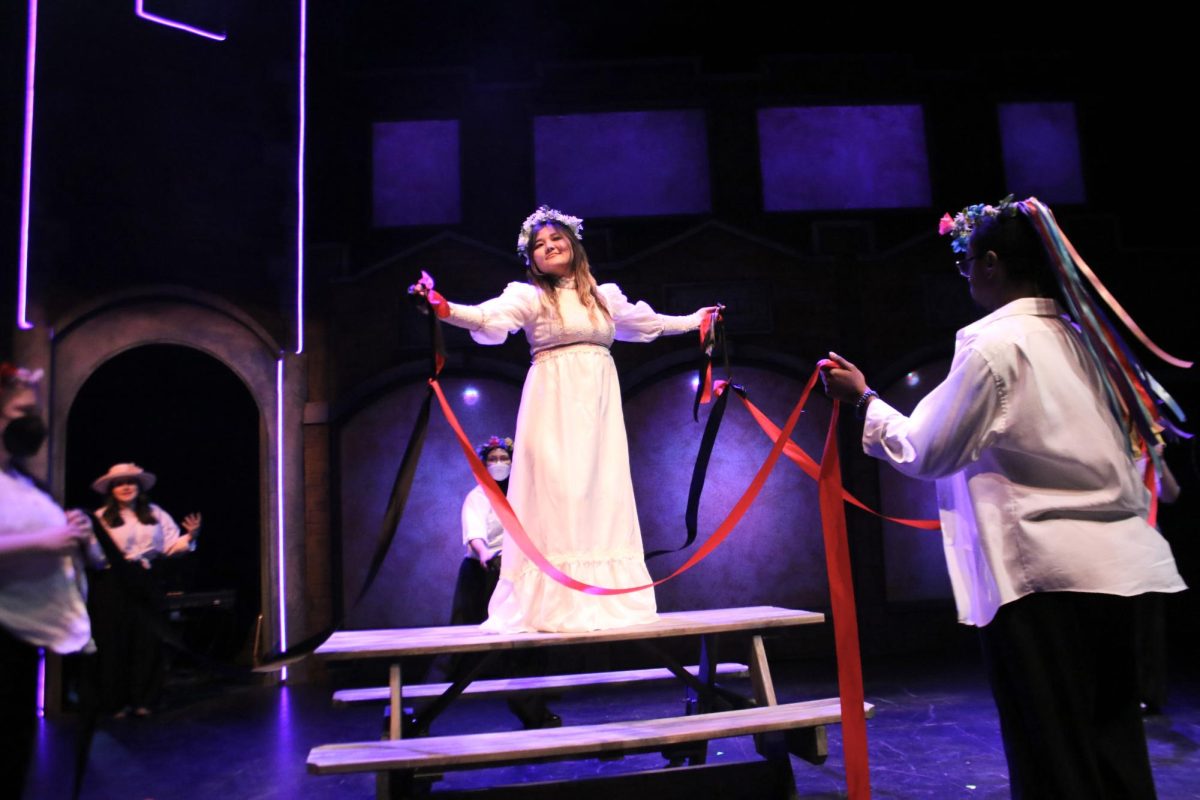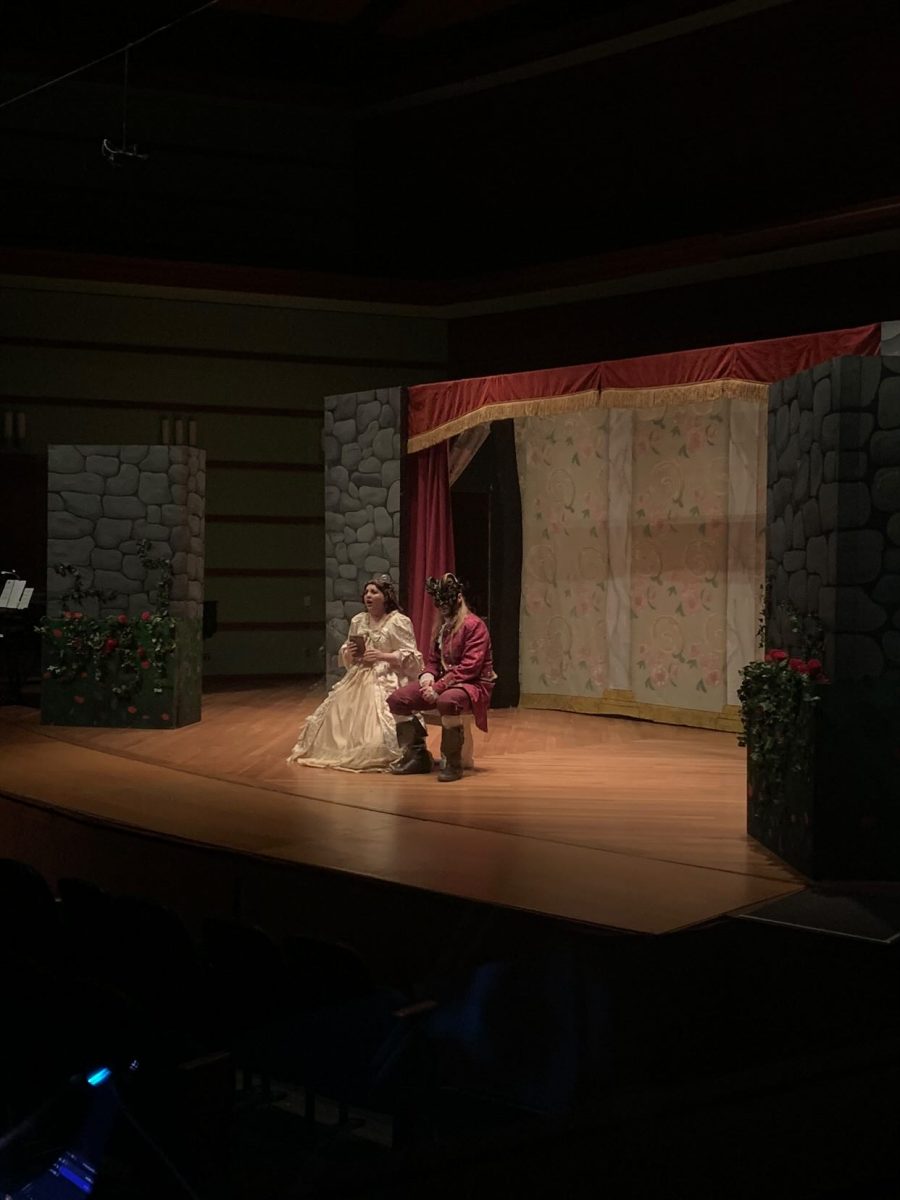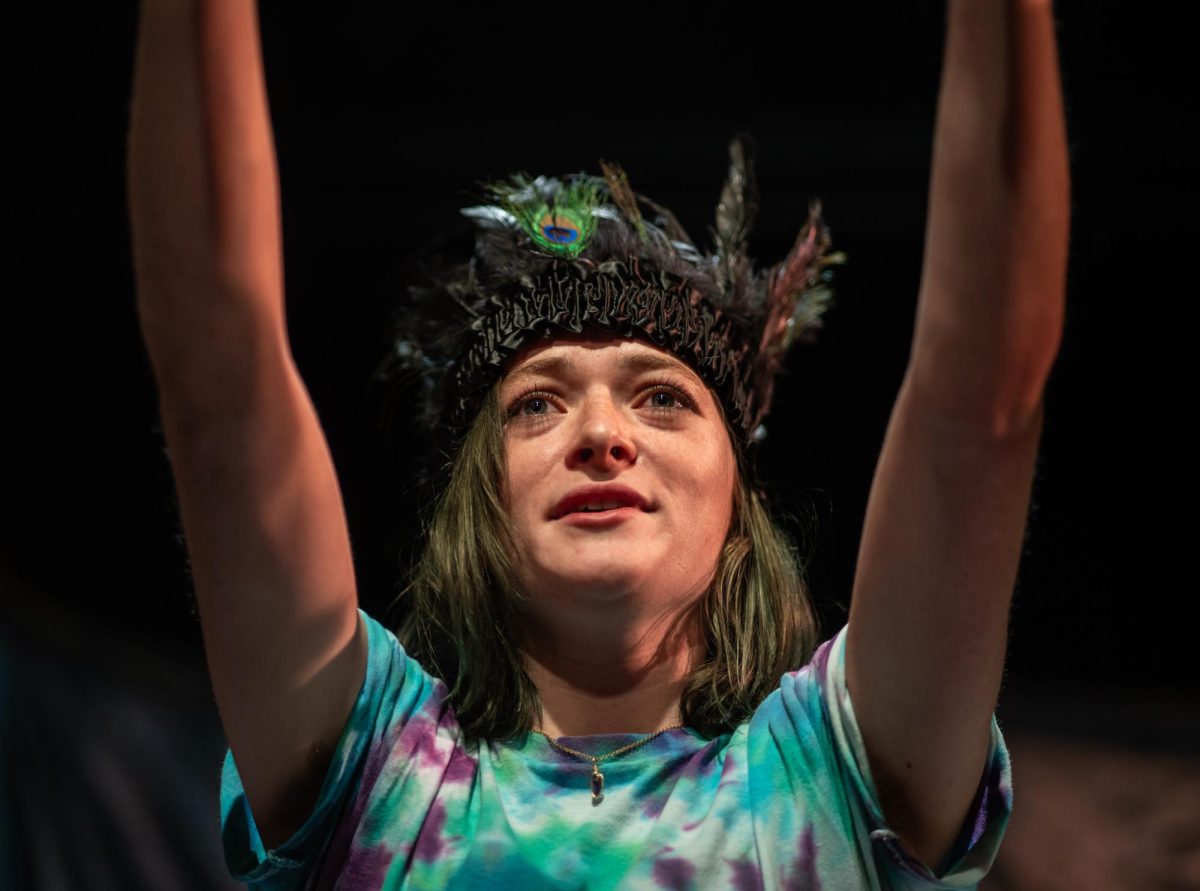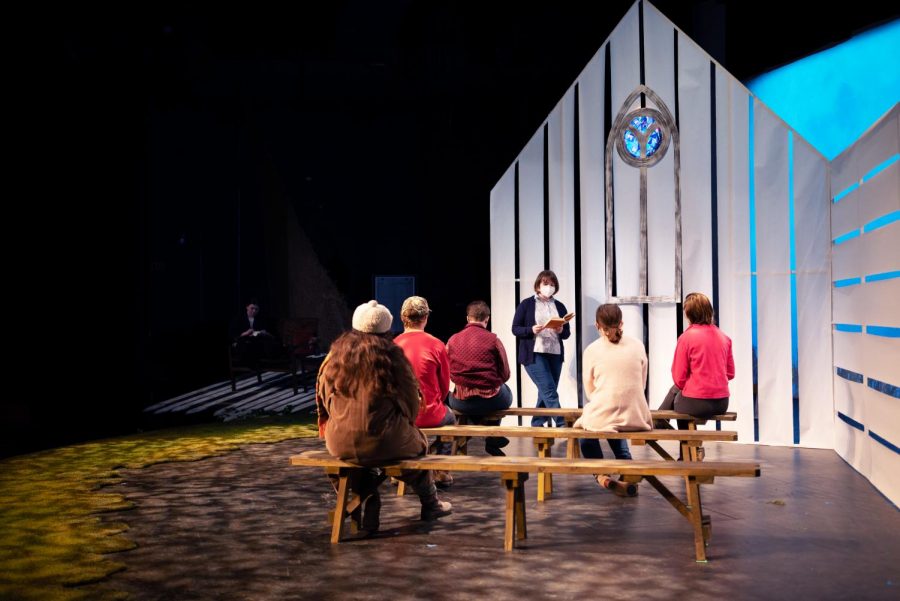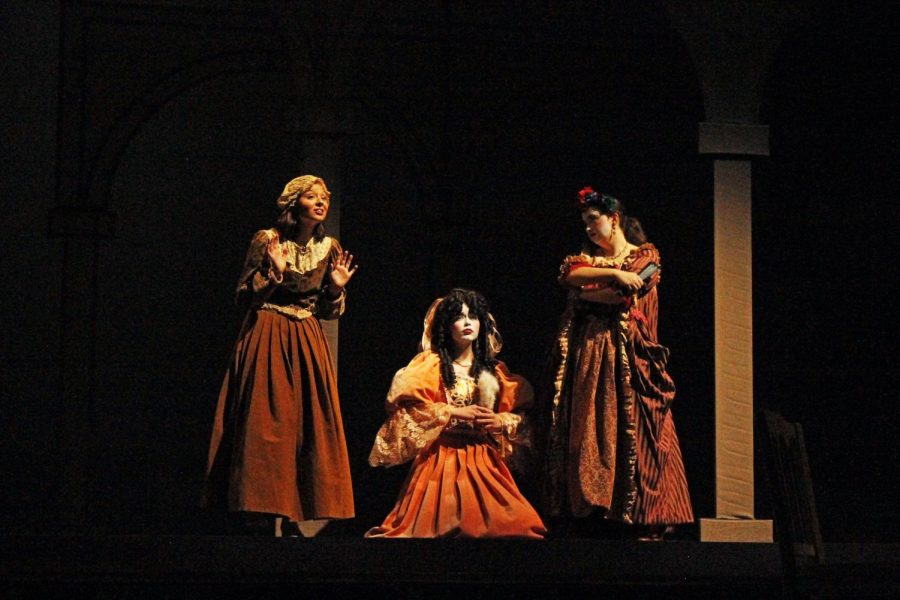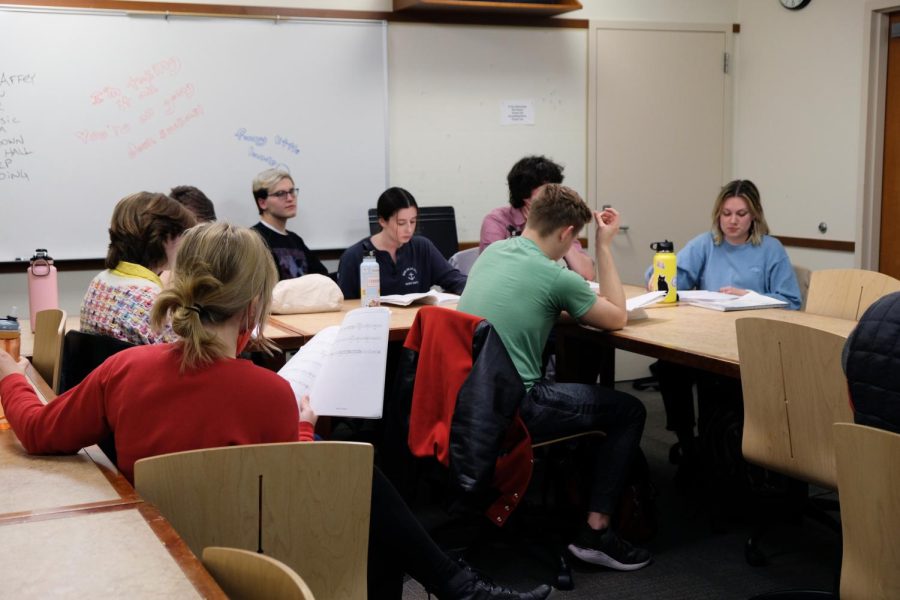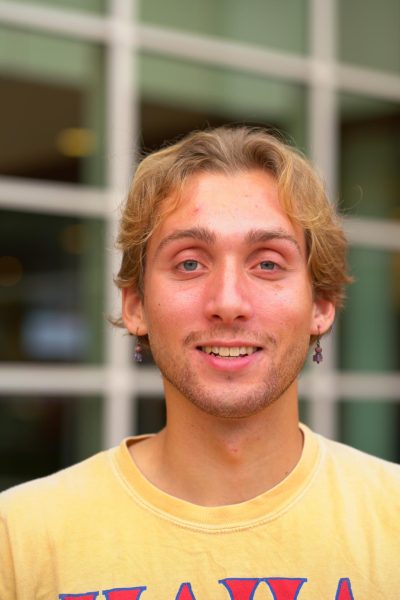In Flanagan Studio Theatre in Bucksbaum Arts Center, chairs, boxes and clothes hang from the ceiling, and seats surround the stage. This past weekend, from Thursday, Oct. 5 to Sunday, Oct. 8, the Grinnell College department of theatre, dance and performance studies encouraged reflection on the human experience of approaching and accepting death through their performance of the abstract play, “Everybody,” directed by visiting assistant professor Karie Miller.
“Everybody” is a 2017 adaptation by Branden Jacobs-Jenkins of the original play, “Everyman,” which was written in the late 15th century and, as such, is one of the first recorded plays in the English language. “Everyman” is a morality play — a term used by theater scholars to describe a play from the 14th to 16th centuries in which the characters are not individual people, as one might expect, but personified concepts instead. “A morality play was basically church propaganda, in its time, to get people to be afraid of going to hell,” explained Miller.
Jacobs-Jenkins’ modern interpretation of the show retains personified notions as characters but reframes the story from a secular point of view, emphasizing the unknown nature of death and the human emotional response that comes with it. Miller said of the play, “It’s meant to explore the journey of this thing that everyone is going to have to go through. It sounds dark, but Branden Jacobs-Jenkins is interested in finding levity amidst the dark.”
The play begins with the character Death, portrayed by Sophie Noyes `24, entering and choosing the character Everybody to die. “Death comes to Everybody and says, ‘It’s time to die,’” said Miller. “Everybody’s like, ‘Well, no, I need to bring someone with me. This is really scary. I’m so sad.’ And they spend the rest of the play trying to figure out somebody to come with them.”
“Most of the action comes from that liminal stage between ‘I am leaving life, but I have not yet entered death,’” said Noyes. “And all of the mental and emotional processes that occur behind that transition, that’s what the play is about. And I think that’s really cool. I think that’s something that we as people are somewhat afraid to examine.”
Miller said that to emphasize the show’s themes of uncertainty and the lack of control we have over our lives, the show is written with a unique casting system — 9 out of the 13 cast members draw from a lottery ball machine at the beginning of the show, which determines what role they will be playing for that performance. “When they wake up that morning, they don’t know who they’re playing, for example. And they don’t know until they get to the theater,” said Miller. “So they basically have had to learn not just the lines of these characters, but all of the blocking, all of the cues with lighting and [they need to] have interpretations of all of the characters.”
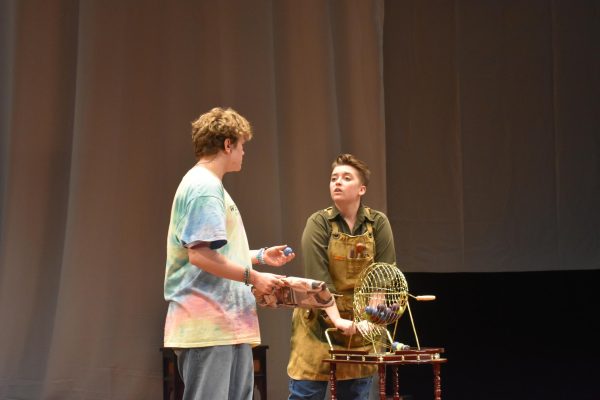
In this way, the very structure of the show melds with its subject matter, acting as a metaphor and giving the actors a chance to experience the themes of the show firsthand. This sentiment was echoed by Miller, who said, “The most important thing of doing this show in terms of learning outcomes was giving students a chance to deal with the unknown, and change and circumstances outside their control,” said Miller.
According to Miller, this provided a challenge but also proved to be rewarding, as the show’s process did not only teach the cast valuable theater and acting lessons but also valuable life lessons.
“In my time teaching theater at the college level, it is hard for students to ask for help, it is hard for students to negotiate change, it is hard to balance all these things, it is hard to not be taken out by the paralysis that happens when you don’t know what to do,” she said. “You just have to get through that stress, and the more you practice, the more you can find your feet.”
Miller said that throughout this process, the cast and crew became more comfortable together, which created a positive environment for everyone involved. “It’s this vulnerability that you have to work up to, but I think they formed it. They’re a good team for each other, all of them together. And then our team of stage managers is also crucial to that. And even as we’ve been going through tech, everyone has been very easy to work with and pleasant and supportive and very interested in getting to performance, but in the most humane way possible.”
Noyes said that their experience in this show was particularly relevant to them, given recent life events. “Unfortunately, I lost both my dog and my grandfather this summer, so entering this play as Death was really meaningful for me from that angle,” they said. “We can’t know what life was about until we don’t have it. We don’t know. Death gives meaning to life.”


















































